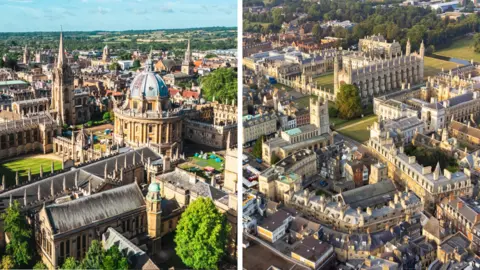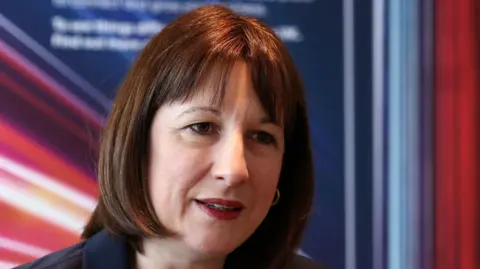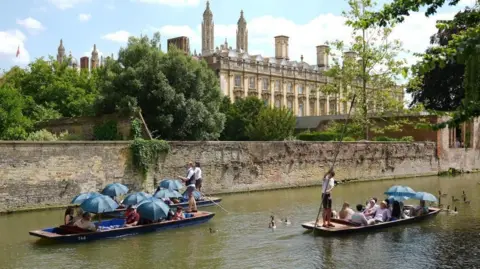Mariam Issimdar
 Getty Images
Getty ImagesThe government is to invest £500m to “kickstart” regional growth in “Europe’s Silicon Valley”.
Money for the Oxford-Cambridge Corridor will see £400m spent on the Cambridge end to boost development with affordable homes, infrastructure and business expansion, the government said.
The Cowley branch railway line will also be reopened with new stations at Littlemore and Cowley, “to help support the creation of up to 10,000 new jobs and homes in Oxford”.
The government said the investments would build on its commitment to deliver East West Rail, “which will strengthen links between Oxford and Cambridge, Milton Keynes, Bedford and beyond”.
Chancellor Rachel Reeves said the corridor could add £78bn to the UK’s economy by 2035.
Her plans have sparked concern among some Labour MPs in the north of England, who have warned against too narrow a focus on wealthier areas in the south.
 Reuters
ReutersIn January, Reeves announced the Environment Agency had lifted objections to plans for 4,500 homes after the government found “creative solutions to unlock growth and address environmental pressures” following concerns about water scarcity in the region.
Commenting on the latest investment, Reeves said: “Oxford and Cambridge are home to the two of the best universities in the world, two of the most intensive innovation clusters in the world, and the area is a hub for globally renowned science and technology.
“We have massive ambitions for the Oxford-Cambridge corridor, that’s why we’re reopening the Cowley branch railway 60 years after it closed, why we’re building more affordable housing and investing in business, and how we’ve been able to unlock £10bn in private investment.
“By choosing investment and renewal over chaos and decline, we’re boosting growth and building an economy that works for working people.”
 PA Media
PA MediaSir Patrick Vallance, Oxford-Cambridge innovation champion and science minister, said: “These investments are a milestone, not just for the Oxford to Cambridge corridor, but for the entire country.
“We are going to deliver the housing, amenities and infrastructure that businesses need to grow and that people need to flourish.”
Kathryn Chapman, executive director of Innovate Cambridge, welcomed the package.
She said: “Cambridge is a magnet for world-class talent, business and investment, driving innovations that will shape the future – from life-saving medicines to quantum technologies.
“It will remove barriers, unlock growth, and ensure Cambridge and the UK remain at the forefront of global innovation.”
The new funding follows Ellison Institute of Technology (EIT) announcing a £10bn expansion of its Oxford base over the next decade, potentially creating 7,000 jobs.
Lisa Flashner, EIT’s chief operating officer, said the government’s investment would help it attract “world-class talent” by linking key innovation hubs with more direct train services.
“We’re delighted to hear the Cowley branch line will be reopened to passenger traffic,” she said.
“It’s a great example of what can happen if government and the private sector join forces and both contribute to a common goal.”
 PA Media
PA MediaProf Roderick Watkins, vice chancellor and chair of the Arc Universities Group, said the investment would serve as a “blueprint for universities”, with government and private investment working together “to drive inclusive, sustainable growth”.
“What sets the Arc Universities Group apart is the diversity of its institutions, which together offer a remarkable breadth of world-class research, innovation and skills provision,” said Prof Watkins.
The government said the investment would include £15m for the University of Cambridge Innovation Hub to create lab space for science start-ups to grow and compete on the global stage.
Disclaimer : This story is auto aggregated by a computer programme and has not been created or edited by DOWNTHENEWS. Publisher: BBC










